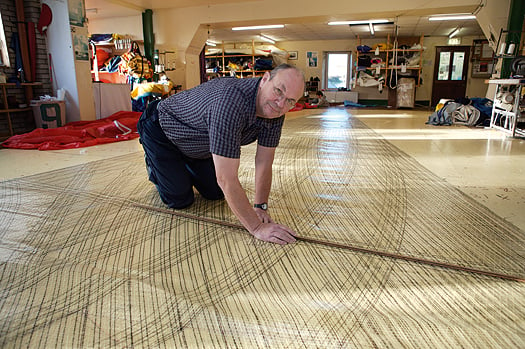Displaying items by tag: Ullmer
McWilliam Becomes President of World Sailmaking Firm
A prestigious appointment to the top of one of the world's biggest sail making firms is a life time reward for a member of a Cork sailing family who built a sail-making business in Ireland.
In a major Irish marine industry announcement, Crosshaven based sail maker Des McWilliam (62) has been appointed President of world sail making Group UK-Halsey.
UK-Halsey is one of the top three sailmakers in the world with 46 lofts worldwide and an annual estimated turnover of €15million.

The loft is credited with using the most advanced technologies in the production of sails including Titanium sails where sail panels are glued rather than stitched for lightness and better shape.
McWilliam's appointment was made at the group's annual meeting in New York this week following the retirement of American founder Butch Ullmer.
Established in 1946 as Ulmer Sails, UK-Halsey Sailmakers is one of the oldest group of sail lofts in North America and has expanded around the
world to become the largest network of owner-run sail lofts.
There are 17 UK-Halsey lofts in North America, 21 in Europe, 3 in Australia, 3 in Asia and two in South America.
The UK Halsey loft in Crosshaven Co.Cork becomes the centre of operations as McWilliam rolls out new group strategies in challenging and competitive
times for the 45 sail makers.
Now in its fortieth year of sail manufacture in Ireland McWilliam says this week's appointment will underpin the future of the Cork loft in a time of
recession.
McWilliam employs six staff in Crosshaven, boosted this season by the appointment of Irish Fireball dinghy champion Kenneth Rumball.




























































